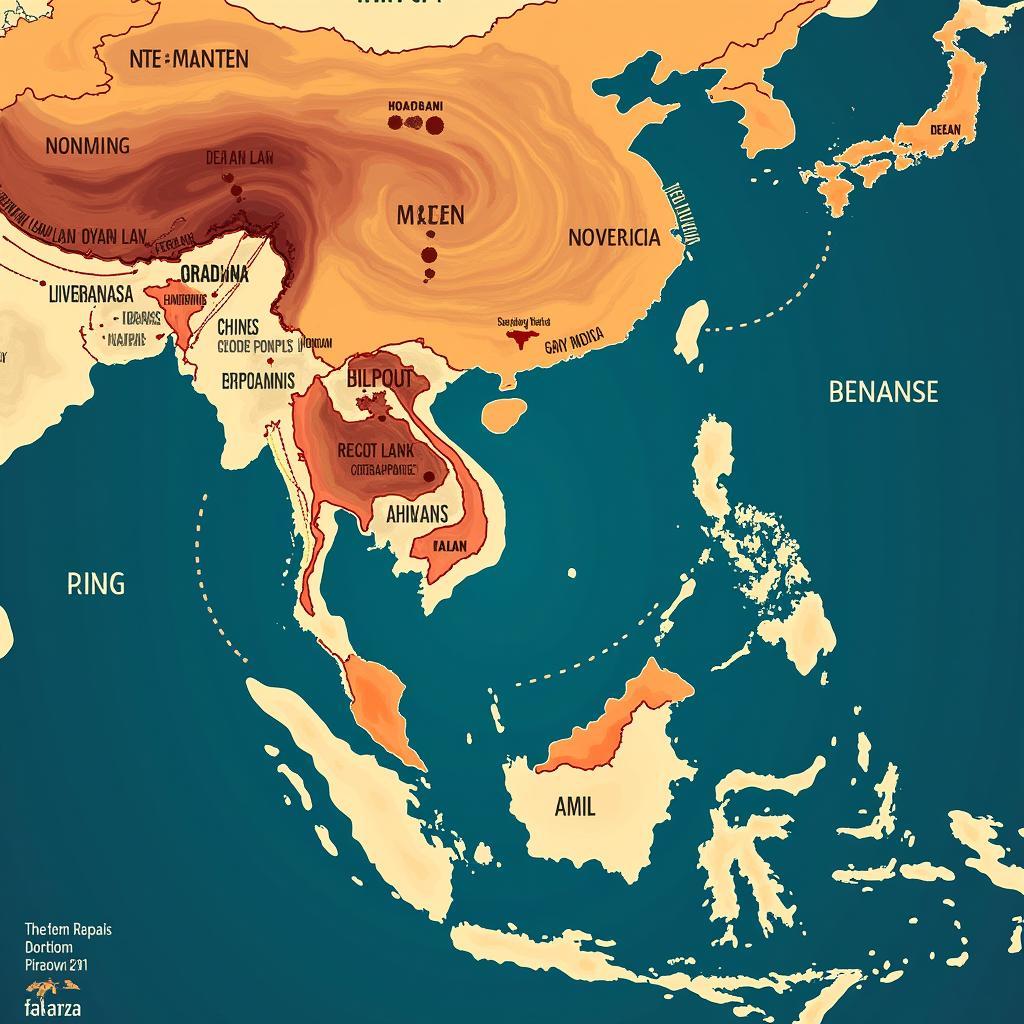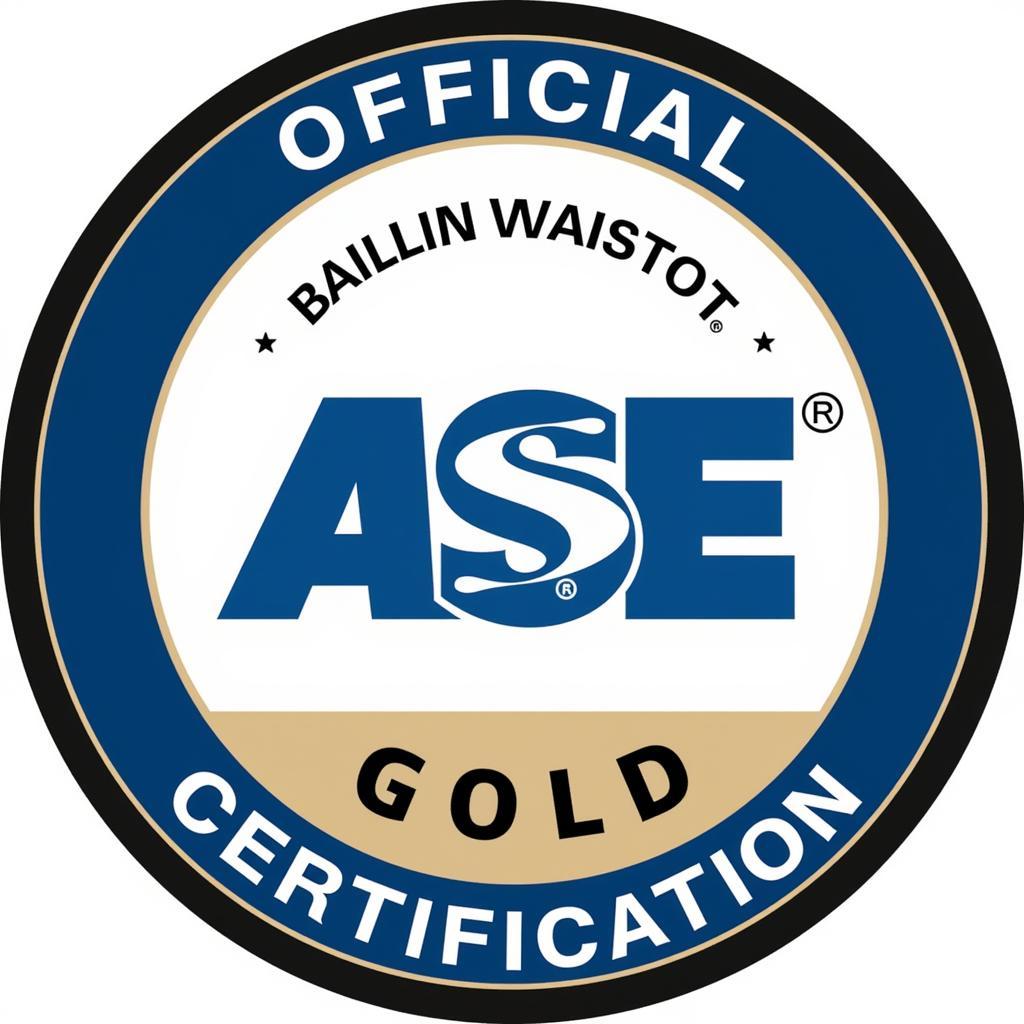The Association of Southeast Asian Nations (ASEAN) is a regional intergovernmental organization comprising ten Southeast Asian countries. This article provides a comprehensive overview About Asean Organisation, exploring its history, objectives, structure, and impact on the region and the world.
Understanding the importance of ASEAN in today’s global landscape is crucial. The organization plays a pivotal role in promoting peace, stability, and economic growth in Southeast Asia. From its inception to its current standing, ASEAN has evolved significantly, adapting to the changing dynamics of the region and the world. Let’s delve into the core aspects of this dynamic organization.
What is the ASEAN Organisation?
The ASEAN organisation was established on 8 August 1967, in Bangkok, Thailand, with the signing of the ASEAN Declaration (Bangkok Declaration) by the five founding members: Indonesia, Malaysia, the Philippines, Singapore, and Thailand. Since then, Brunei, Vietnam, Laos, Myanmar, and Cambodia have joined, expanding the organization’s reach and influence. ASEAN’s primary goal is to accelerate economic growth, social progress, and cultural development in the region through joint endeavors. It also aims to promote regional peace and stability through abiding respect for justice and the rule of law in the relationship among countries in the region and adherence to the principles of the United Nations Charter.
The Structure of the ASEAN Organisation
ASEAN’s structure is designed to facilitate cooperation and coordination among member states. The ASEAN Summit, comprising the Heads of State or Government of the member states, is the supreme policy-making body. The ASEAN Coordinating Council (ACC), made up of the Foreign Ministers of the member states, coordinates the implementation of ASEAN activities. Several other ministerial-level bodies and sectoral committees address specific areas of cooperation, such as economics, culture, and security. The ASEAN Secretariat, based in Jakarta, Indonesia, provides administrative support to the organization. This complex yet streamlined structure allows for efficient decision-making and implementation of policies across the diverse member states. Do you know the AEC meaning in ASEAN?
Key Objectives and Principles of ASEAN
ASEAN adheres to a set of fundamental principles that guide its actions and interactions. These include mutual respect for independence, sovereignty, equality, territorial integrity, and national identity of all member states; non-interference in the internal affairs of one another; renunciation of the threat or use of force; and effective cooperation among member states. These principles are crucial in maintaining peaceful relations and fostering a spirit of cooperation within the region.
ASEAN’s key objectives are to accelerate economic growth, social progress, cultural development in the region through joint endeavors in the spirit of equality and partnership in order to strengthen the foundation for a prosperous and peaceful community of Southeast Asian Nations; and to promote regional peace and stability through abiding respect for justice and the rule of law in the relationship among countries of the region and adherence to the principles of the United Nations Charter.
For those interested in vocational training, information on ASE certified truck technician might be useful.
The Role of ASEAN in the Global Landscape
ASEAN has emerged as a significant player on the global stage. It actively engages in dialogue and cooperation with other countries and international organizations. Through its various free trade agreements and economic partnerships, ASEAN has fostered greater economic integration within the region and beyond. The organization also plays a crucial role in addressing regional security challenges, such as transnational crime and terrorism. What about ASE certification UK?
 ASEAN's Global Impact
ASEAN's Global Impact
ASEAN’s Achievements and Challenges
ASEAN has achieved significant milestones in its journey towards regional integration and development. The establishment of the ASEAN Economic Community (AEC) is a testament to its commitment to economic cooperation. ASEAN has also made strides in promoting social and cultural exchange among member states. However, the organization faces several challenges, including disparities in economic development among member states, territorial disputes, and the need to strengthen regional institutions. Addressing these challenges will be crucial for ASEAN to continue its progress towards a more integrated and prosperous Southeast Asia. More on AEC meaning in ASEAN.
Conclusion
The ASEAN organisation plays a vital role in promoting peace, stability, and prosperity in Southeast Asia. Its comprehensive framework for cooperation and its commitment to regional integration have made it a significant force in the global landscape. As ASEAN continues to evolve and adapt to the changing dynamics of the region and the world, its importance is only set to grow. Understanding about ASEAN organisation is key to appreciating the complex interplay of political, economic, and social forces shaping the future of Southeast Asia.
FAQ
-
What does ASEAN stand for?
- ASEAN stands for the Association of Southeast Asian Nations.
-
When was ASEAN founded?
- ASEAN was founded on 8 August 1967.
-
How many member states are there in ASEAN?
- There are ten member states in ASEAN.
-
Where is the ASEAN Secretariat located?
- The ASEAN Secretariat is located in Jakarta, Indonesia.
-
What is the main objective of ASEAN?
- The main objective of ASEAN is to promote regional peace, stability, and economic growth.
-
What are the key principles of ASEAN?
- Key principles include mutual respect for sovereignty, non-interference, and peaceful dispute settlement.
-
How does ASEAN contribute to the global economy?
- ASEAN contributes through free trade agreements and economic partnerships.
More Questions?
If you have further questions or require assistance, please don’t hesitate to contact us:
Phone: 0369020373
Email: aseanmediadirectory@gmail.com
Address: Thon Ngoc Lien, Hiep Hoa, Bac Giang, Vietnam
Our customer service team is available 24/7 to assist you.

